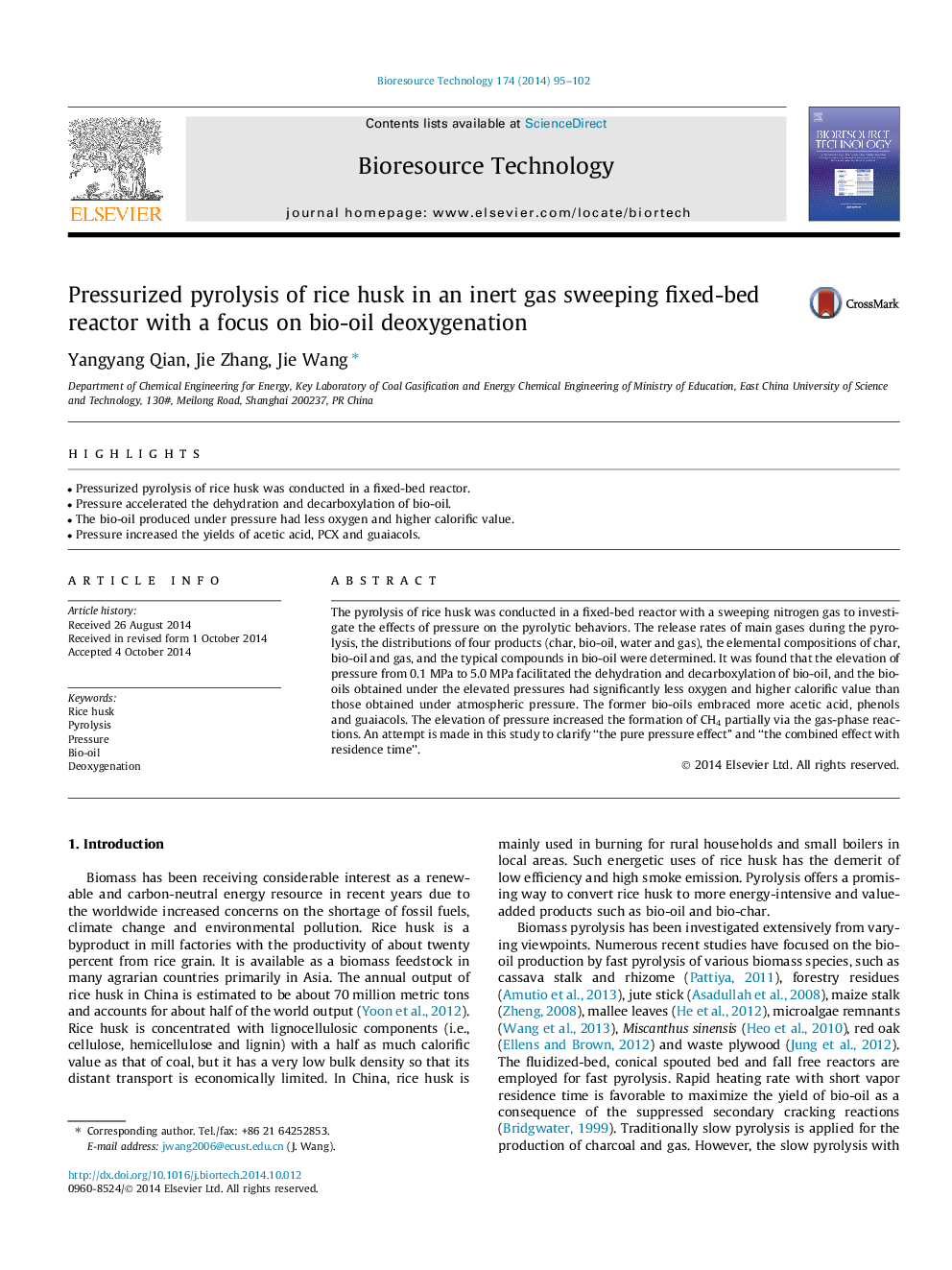| Article ID | Journal | Published Year | Pages | File Type |
|---|---|---|---|---|
| 7075960 | Bioresource Technology | 2014 | 8 Pages |
Abstract
The pyrolysis of rice husk was conducted in a fixed-bed reactor with a sweeping nitrogen gas to investigate the effects of pressure on the pyrolytic behaviors. The release rates of main gases during the pyrolysis, the distributions of four products (char, bio-oil, water and gas), the elemental compositions of char, bio-oil and gas, and the typical compounds in bio-oil were determined. It was found that the elevation of pressure from 0.1Â MPa to 5.0Â MPa facilitated the dehydration and decarboxylation of bio-oil, and the bio-oils obtained under the elevated pressures had significantly less oxygen and higher calorific value than those obtained under atmospheric pressure. The former bio-oils embraced more acetic acid, phenols and guaiacols. The elevation of pressure increased the formation of CH4 partially via the gas-phase reactions. An attempt is made in this study to clarify “the pure pressure effect” and “the combined effect with residence time”.
Related Topics
Physical Sciences and Engineering
Chemical Engineering
Process Chemistry and Technology
Authors
Yangyang Qian, Jie Zhang, Jie Wang,
